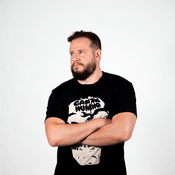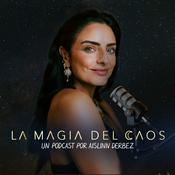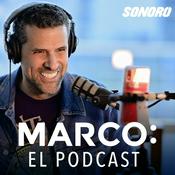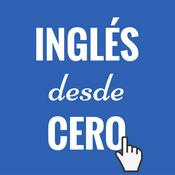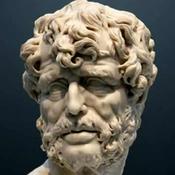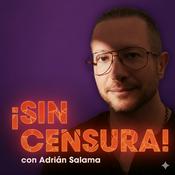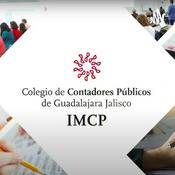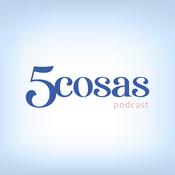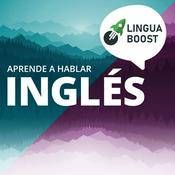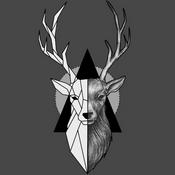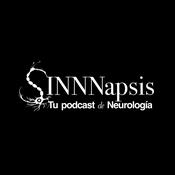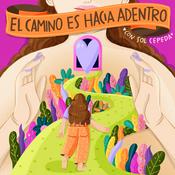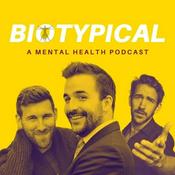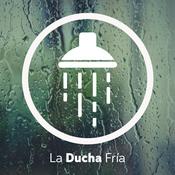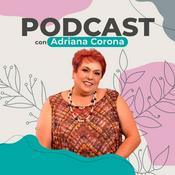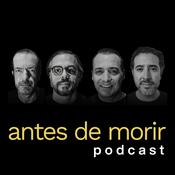58 episodios
- An announcement explaining why I'm cancelling the podcast. If you want more information about it, I wrote a public blog post over on the Patreon page. Check it out.
https://www.patreon.com/c/DailyScienceBrief
Please SUBSCRIBE HERE to get the show delivered straight to you.
Special thanks to our supporters who help make this show possible.
Enjoy the show? You can support us too on Patreon. Help keep the show going. Thank you!
Send us email to [email protected]
Host, Research, and Writing: Bobby Frankenberger
Cover Art: Scott Johnson
Outro Music: Stravyn
Brought to you by the DTNS Family of podcasts.
Hosted on Acast. See acast.com/privacy for more information. - Penguins with dagger-like beaks, a collapsing Atlantic current, a brain map of 600,000 cells, and a bear skull that proves gladiators fought wild animals.
SOURCES
Early penguins may have used dagger-like beaks to skewer prey | New Scientist
Key Atlantic current could start collapsing as early as 2055, new study finds | Live Science
Map of 600,000 brain cells rewrites the textbook on how the brain makes decisions | Live Science
Skull of bear held captive to fight Roman gladiators discovered near ancient amphitheater in Serbia | Live Science
Please SUBSCRIBE HERE to get the show delivered straight to you.
Special thanks to our supporters who help make this show possible.
Enjoy the show? You can support us too on Patreon. Help keep the show going. Thank you!
Send us email to [email protected]
Host, Research, and Writing: Bobby Frankenberger
Cover Art: Scott Johnson
Outro Music: Stravyn
Brought to you by the DTNS Family of podcasts.
Hosted on Acast. See acast.com/privacy for more information. - Why scrolling on the toilet could be bad for your health, why we may have way less carbon storage underground than we thought, whether plant-based dog food really works, and how humans and AIs fall for the same persuasion tricks.
SOURCES
Smartphone scrolling on the toilet could increase risk of haemorrhoids | New Scientist
We may have 10 times less carbon storage capacity than we thought | New Scientist
Plant-based dog foods provide almost all the nutrients pets need | New Scientist
These psychological tricks can get LLMs to respond to “forbidden” prompts | Ars Technica
Please SUBSCRIBE HERE to get the show delivered straight to you.
Special thanks to our supporters who help make this show possible.
Enjoy the show? You can support us too on Patreon. Help keep the show going. Thank you!
Send us email to [email protected]
Host, Research, and Writing: Bobby Frankenberger
Cover Art: Scott Johnson
Outro Music: Stravyn
Brought to you by the DTNS Family of podcasts.
Hosted on Acast. See acast.com/privacy for more information. - Blobs from failed planets hiding in Mars, a possible anti-aging drug, a surprising benefit of the hepatitis B vaccine, and recycling old cars into new ones.
SOURCES
Dozens of mysterious blobs discovered inside Mars may be the remnants of 'failed planets' | Live Science
Rapamycin may extend lifespans by protecting against DNA damage | New Scientist
Hepatitis B vaccine linked with a lower risk of developing diabetes | New Scientist
Can we finally recycle all of the metal in scrap cars? | New Scientist
Please SUBSCRIBE HERE to get the show delivered straight to you.
Special thanks to our supporters who help make this show possible.
Enjoy the show? You can support us too on Patreon. Help keep the show going. Thank you!
Send us email to [email protected]
Host, Research, and Writing: Bobby Frankenberger
Cover Art: Scott Johnson
Outro Music: Stravyn
Brought to you by the DTNS Family of podcasts.
Hosted on Acast. See acast.com/privacy for more information. - Volcanoes can lead to revolutions, onions powering solar panels, a spacecraft predicting solar storms, and computers you can throw in the wash.
SOURCES
Volcanic eruptions may have helped spark the French Revolution | New Scientist
Scientists turned to a red onion to improve solar cells — and it could make solar power more sustainable | Live Science
Spacecraft used to forecast solar storm 15 hours before it hit Earth | New Scientist
Scientists cram an entire computer into a single fiber of clothing — and you can even put it through your washing machine | Live Science
Fibre computer enables more accurate recognition of human activity | EurekAlert! - AAAS
Please SUBSCRIBE HERE to get the show delivered straight to you.
Special thanks to our supporters who help make this show possible.
Enjoy the show? You can support us too on Patreon. Help keep the show going. Thank you!
Send us email to [email protected]
Host, Research, and Writing: Bobby Frankenberger
Cover Art: Scott Johnson
Outro Music: Stravyn
Brought to you by the DTNS Family of podcasts.
Hosted on Acast. See acast.com/privacy for more information.
Más podcasts de Educación
Podcasts a la moda de Educación
Acerca de Daily Science Brief
Daily Science Brief brings you quick, trustworthy updates on the most important science news. In just a few minutes, you'll get the facts without the fluff, helping you stay informed without getting overwhelmed. In a time when it's hard to know what information you can trust, we’re here to make science clear, honest, and relevant to your life. Hosted on Acast. See acast.com/privacy for more information.
Sitio web del podcastEscucha Daily Science Brief, Martha Debayle y muchos más podcasts de todo el mundo con la aplicación de radio.net
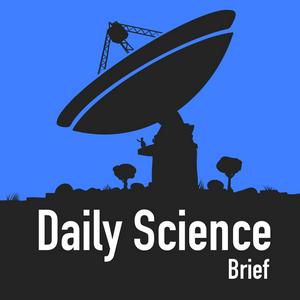
Descarga la app gratuita: radio.net
- Añadir radios y podcasts a favoritos
- Transmisión por Wi-Fi y Bluetooth
- Carplay & Android Auto compatible
- Muchas otras funciones de la app
Descarga la app gratuita: radio.net
- Añadir radios y podcasts a favoritos
- Transmisión por Wi-Fi y Bluetooth
- Carplay & Android Auto compatible
- Muchas otras funciones de la app


Daily Science Brief
Escanea el código,
Descarga la app,
Escucha.
Descarga la app,
Escucha.


